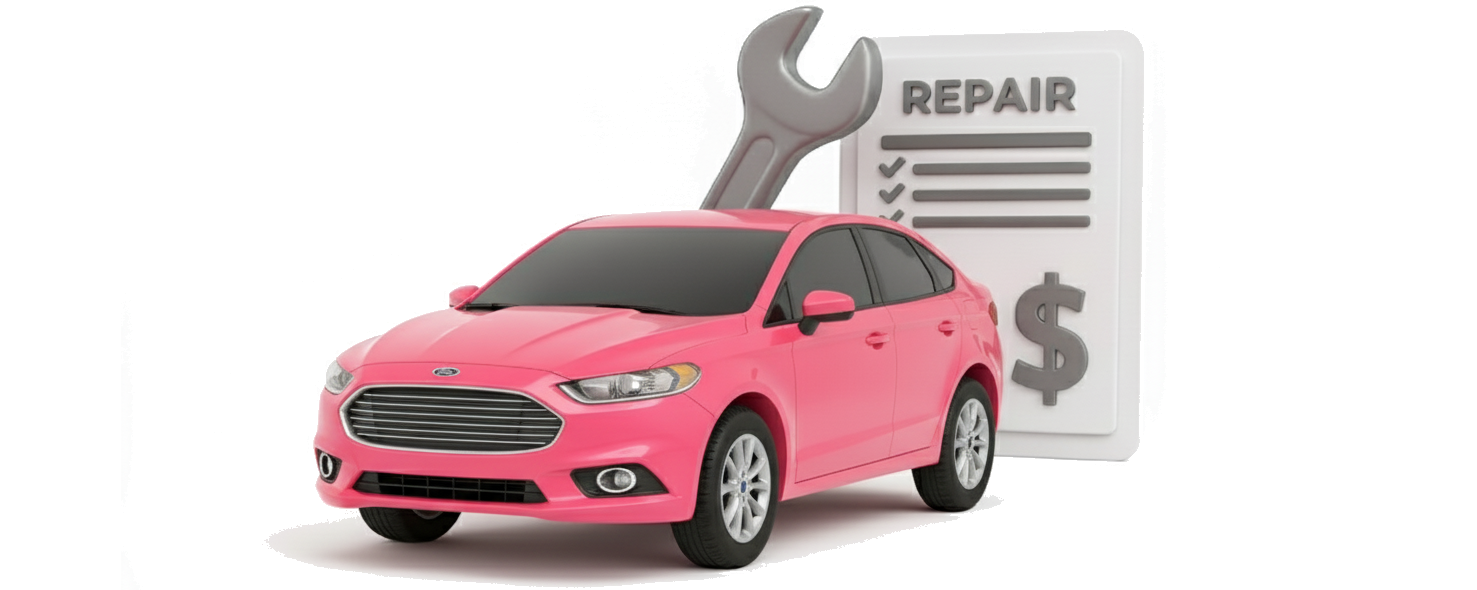Basic alternator diagnosis runs $50–$150, while component-level repairs like voltage regulator or brush replacements cost $150–$400—though most modern shops instead replace the entire alternator.
On economy cars, expect $450–$700 total, but larger trucks, luxury models or vehicles with smart or water-cooled alternators can hit $900–$1,400. Labor usually takes 1.0–3.5 hours, depending on engine layout and whether related belt components are added.
Use the Jerry app to help you sort through local pricing options for your exact car and location to find the right fit for you and get your car back on the road.
Real customers Jerry helped
See what an alternator replacement cost could look like for drivers like you. Here are some examples of customers Jerry helped – for real vehicles and locations.
Estimates are modeled based on real vehicle and location data; names have been changed. Actual prices will vary by shop, parts, and vehicle condition.
Cost breakdown: Why the price varies
Several factors influence your final bill, from the car’s design to the parts you choose. Here’s how Jerry has found that each piece typically affects your alternator repair cost:
Vehicle and engine layout ($150–$400):
A compact sedan with easy access might take 1.0–1.5 hours while a transverse V6, AWD packaging or luxury engine covers can double or triple labor time.
Part choice ($150–$500):
Remanufactured aftermarket units cost $200–$400 while new Original Equipment Manufacturer (OEM) alternators often run $400–$900+. High-output alternators – for towing packages or premium audio – add to the bill.
Labor rate and time (±$100–$600):
Shop rates range $90–$180/hr, and book time varies from 1.0-3.5 hours. Add diagnostic time if electrical or charging issues need tracing.
Electrical repairs and coding ($50–$200):
Damaged connectors, corroded grounds, blown fusible links or “smart alternator” coding (LIN/BSS systems) may require extra diagnostic time or programming.
Core charge ($50–$150):
Many alternators include a refundable core deposit when you return the old unit.
Taxes, fees, and shop supplies ($20–$60):
Local taxes and shop charges vary.
Pro tip: On some European cars (BMW, Mercedes) and hybrids, water-cooled or highly integrated alternators can raise both parts and labor costs significantly.
What is an alternator?
The alternator is your car’s power plant while the engine runs. It converts mechanical energy into electrical energy to charge the battery and power all vehicle electronics. A rotor spins inside a stator to create AC current, which is converted to DC by diodes and regulated by a voltage regulator. The alternator is driven by the serpentine belt and may use an overrunning pulley to reduce belt noise. Many newer cars use “smart” alternators controlled by the car’s computer to optimize efficiency. Hybrids often use DC-DC converters instead of traditional alternators.
What are signs that you need an alternator replaced?
Alternator issues usually show clear symptoms. Here are a few warning signs Jerry finds that customers are seeing:
- Battery/charging light or “Service Charging System” message.
- Dim or flickering headlights and interior lights, especially at idle.
- Slow power windows, radio resets or HVAC blower surges.
- Whining, grinding or a burning smell near the belt drive.
- Repeated dead battery after short trips.
- Voltage tests outside the 13.5–14.8V range, or AC ripple above 0.3V.
Pro tip: Don’t disconnect the battery with the engine running—this old “test” can damage electronics.
Your action plan: How to save money
You can control costs by verifying the problem and choosing parts wisely. Here’s how:
Confirm the symptoms:
Check the mechanical function of the alternator for binding or burnt parts. Test the alternator output with a charging system test. The battery must also be tested, a failing battery can have similar symptoms to the alternator.
Assess the difficulty:
Some alternators can be quickly others require extensive part removal to replace. Liquid cooled alternators require additional steps in replacement vs a standard.
Get competing quotes:
Compare the overall quote, labor times, and part selection to make a fair assessment. Make sure the alternator is the correct one for your vehicle. Jerry app offers quotes from local, certified shops.
Check the warranty:
Bumper to bumper warranties cover alternator replacement. Some extended warranties also will cover the cost. Some alternators will even come with a parts warranty.
DIY vs. Pro: Can I do this myself?
Replacing an alternator ranges from straightforward to challenging depending on your car. Jerry can help give you more clarity as you’re pricing out parts and labor. Use the table below to weigh DIY vs. professional service:
If your car has an accessible engine bay and you’re comfortable with electrical testing, DIY may work. For tight bays, smart charging systems or if you lack a multimeter, professional service is safer.

Related repairs
Alternator jobs often overlap with other components. If a shop suggests these, there’s usually a good reason, and Jerry can help customers find bundled services at the right price.
- Serpentine belt and tensioner: Worn parts cause belt slip and poor charging.
- Battery and terminals: Chronic under/overcharging damages batteries; clean terminals and replace weak batteries.
- Overrunning decoupler pulley: Failure causes belt chatter and noise; some allow pulley-only replacement.
- Wiring, grounds and fusible links: Corrosion or a blown link can mimic a bad alternator.
- ECU coding or updates: Some smart charging systems require programming or relearn procedures after alternator replacement.
No matter what repairs you need, use the Jerry app to price them out and come up with a game plan before you head to the shop. Knowing expected prices can help you avoid surprises.
What our customers are asking
-
How long can I drive with a bad alternator?
-
Will a new battery fix it?
-
How long does an alternator last?
-
Is rebuilt/remanufactured okay?
-
How long does replacement take?
-
Can a bad alternator damage other parts?
-
Why does mine fail only under load?

Beginning with Hot Wheels toys as a preschooler, Rocco’s lifelong passion for cars has taken him from high school occupational courses to decades of master mechanic experience in mobile, dealership and independent auto shops.
Rocco’s professional career began in 1997 with factory Ford training in San Diego. While gaining invaluable experience in dealerships and independent shops, he went forward to complete Toyota factory training and graduated from the Universal Technical Institute near Chicago in 2009.
In 2014, Rocco opened Rocco’s Mobile Auto Repair in California servicing Los Angeles, Orange and San Diego Counties with both individual and fleet-based services. After years of success, Rocco shifted his work model from running a business to managing an independent automotive shop. Now in Tennessee, he focuses on training new technicians to be their best.

Steve Kaleff began working on cars at the very young age of nine years old, when his dad actually let him make fixes on the family car. Fast forward to the beginning of a professional career working at independent repair shops and then transitioning to new car dealerships. His experience was with Mercedes-Benz, where Steve was a technician for ten years, four of those years solving problems that no one could or wanted to fix. He moved up to shop foreman and then service manager for 15 years. There have been tremendous changes in automotive technology since Steve started his professional career, so here’s looking forward to an electric future!

Nick Wilson is an editor, writer, and instructor across various subjects. His past experience includes writing and editorial projects in technical, popular, and academic settings, and he has taught humanities courses to countless students in the college classroom. In his free time, he pursues academic research, works on his own writing projects, and enjoys the ordered chaos of life with his wife and kids.









